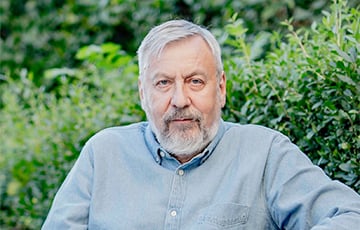BAJ: “It is really disappointing to see display of cynicism on behalf of our European partners…”
5- 13.03.2009, 12:18
Journalists are indignant at the estimation of the situation with freedom of expression in Belarus made by the PA OSCE delegation.
"Adoption of the new media law in Belarus that took into consideration suggestions of the European community became a very good sign," BELTA state information agency cites Uta Zapf, the chair of the OSCE PA Working Group on Belarus. According to the agency, she made this statement during a press conference 11 March in Minsk.
"I cannot say radical changes for better take place in Belarus, it is more step by step rather than radical. But it is pleasant to see there is a will of the authorities to reconsider legislation in the European direction. And this inspires respect," Uta Zapf is quoted by Radio Svaboda as saying.
Ms. Zapf gave an example of two independent newspapers, Narodnaya Volia and Nasha Niva, that were returned to state systems of press distribution. "My colleague bought one of those newspapers in a kiosk in the Presidential Administration, and I will keep it," Uta Zapf said, according to Radio Liberty / Radio Free Europe.

PA OSCE press-conference
In an interview to the press-service of the Belarusian Association of Journalists, journalists of the Belarusian Association of Journalists comment the statement of the PA OSCE working group head.
 "I am surprised to hear evaluations like that," Deputy Chairperson of Belarusian Association of Journalists Andrei Bastunets comments. (He took part in the meeting of the PA OSCE with representatives of the civil society on March 10).
"I am surprised to hear evaluations like that," Deputy Chairperson of Belarusian Association of Journalists Andrei Bastunets comments. (He took part in the meeting of the PA OSCE with representatives of the civil society on March 10).
"While adopting the new media law in Belarus no recommendations of the European institutions were taken into consideration. The law was adopted in demonstratively short terms and the authorities did not apply for any international expertise. At the same time the expertise done by the OSCE was not taken into consideration. It is true that some recommendations of European structures were heard while implementing the law. But the law itself remains non-democratic and if the political situation changes we will have an opportunity to "get acquainted" with all its repressive provisions.
I’d like to remind that the law still provides for necessity to control Internet, it makes it easier to close down a media outlet and forbids activities of foreign reporters without accreditation."
 Valery Bulhakau, the editor of ARCHE magazine (one of its issues has been found extremist) says:
Valery Bulhakau, the editor of ARCHE magazine (one of its issues has been found extremist) says:
"Of course, we can see some progress in the media field, e.g. two independent newspapers are allowed to the state distribution systems. But I doubt that the new media law will bring any progress to the media situation. It has brought in only an unpleasant process of re-registration so far."
"But we should keep it in mind that the media field in Belarus is controlled not only by the media law. For instance, we have got under the "deadly" implementation of the law on the counteracting to extremism.
We can consider the statement of Uta Zapf as a tactical move on the way of making relations between Europe and Belarus closer. The process itself can be positive. But it is really disappointing to see such display of cynicism on behalf of our European partners."
 The head of Homel Branch of BAJ Anatol Hatouchyts (not long ago two members of Homel branch were issued official warning for cooperation with Belsat TV channel) commented:
The head of Homel Branch of BAJ Anatol Hatouchyts (not long ago two members of Homel branch were issued official warning for cooperation with Belsat TV channel) commented:
"I can’t understand why foreign observers regard returning of two independent newspapers in the distribution networks as a "breakthrough" in the media field. Of course, it is great Narodnaya Volia and Nasha Niva are available in kiosks, but this does not mean we face real improvements in the freedom of expression. Here in Homel we cannot even feel "scent" of "liberalization". Five members of our local BAJ branch received official warnings since 2006 for "cooperation with foreign media". Journalists have no possibility to get accreditation and work officially, and there are no improvements with this situation according to the new media law. Two journalists from Homel, Tatsiana Bublikava and Aleh Razhkou, received warning this February."
 The editor of Tovarishch newspaper (which had to suspend publication) Siarhey Vazniak says:
The editor of Tovarishch newspaper (which had to suspend publication) Siarhey Vazniak says:
"It’s not clear what positive changes Uta Zapf refer to. As the editor of a non-state newspaper I can see no improvement of the situation," More than that, our newspaper stopped issuing a month ago, because we don’t have equal economic conditions of work. We have to be printed abroad, because Belarusian printing houses refuse to publish our newspaper. We are refused the possibility to be distributed through kiosks and subscription. So where is the progress?"
 Ivan Roman, a Hrodna-based journalist denied accreditation as a correspondent of Radio Racyja, added:
Ivan Roman, a Hrodna-based journalist denied accreditation as a correspondent of Radio Racyja, added:
"The latest events with refusals of accreditation to several independent journalists who work for foreign media and deprivation of accreditation of Andrei Poczobut show that there are no positive changes."










